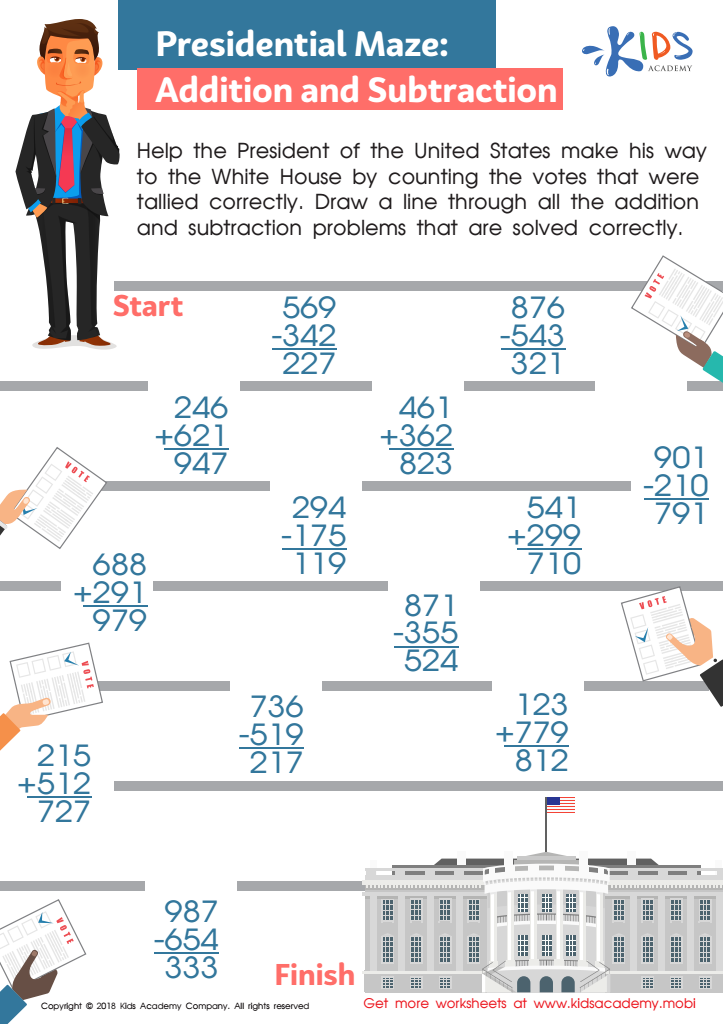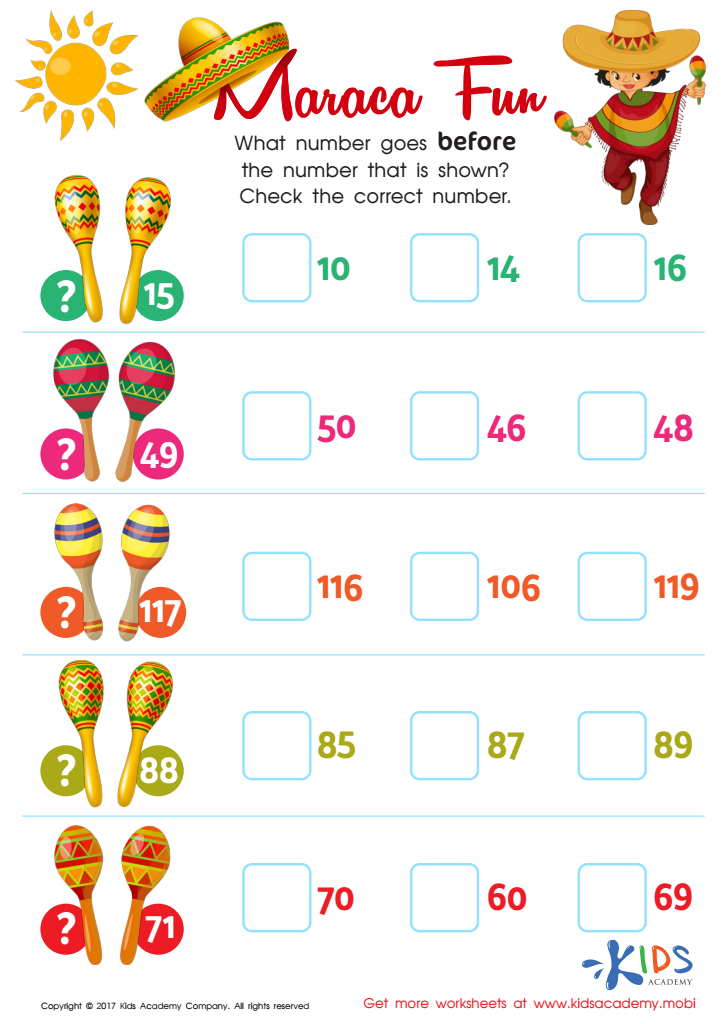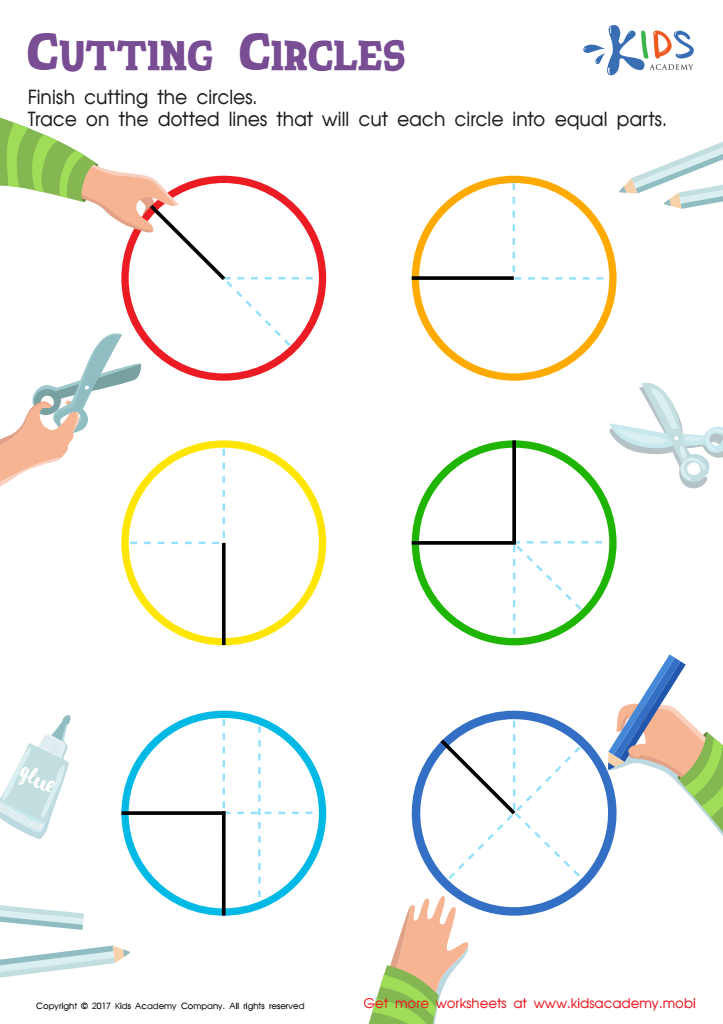Develops fine motor skills Normal Math Worksheets for Ages 4-9
3 filtered results
-
From - To
Our trusted math worksheets for children ages 4-9 are expertly designed to develop fine motor skills while building essential math competencies. Engaging activities like tracing numbers, connecting dots, and solving basic puzzles encourage precise hand movements, which are vital for writing and daily tasks. These worksheets make learning fun and interactive, fostering a love for math from an early age. Developed by experts, each worksheet combines educational rigor with playfulness, ensuring children enhance their cognitive skills and dexterity simultaneously. Join us to nurture young minds, enhancing their mathematical proficiency and motor coordination through enjoyably challenging exercises.


Presidential Maze: Addition and Subtraction Worksheet


Counting: Maraca Fun Worksheet


Cutting Circles Worksheet
Parents and teachers should care about developing fine motor skills through normal math for children ages 4-9 because these skills are fundamental for academic success and overall development. Fine motor skills entail the coordination of small muscles in activities like writing, holding a pencil, and manipulating objects, all crucial for classroom learning. By incorporating math activities, like coloring numbers, using manipulatives (e.g., counting beads), or tracing shapes, children enhance their dexterity while simultaneously building foundational math skills.
Strengthening fine motor skills through math fosters better handwriting, enabling children to complete written assignments more effectively. This dual focus also nurtures cognitive development by linking visual and tactile inputs, which reinforces memory and problem-solving abilities. As children improve these skills, they're likely to gain confidence both in their physical capabilities and in their mathematical prowess.
Teachers and parents who emphasize fine motor development alongside math can create more engaging and versatile learning environments. This holistic approach not only supports children's academic readiness but also encourages creativity, independent learning, and persistence. Overall, integrating fine motor skill practice within early math education lays a robust groundwork for lifelong learning and daily functioning.
 Assign to My Students
Assign to My Students




.jpg)











